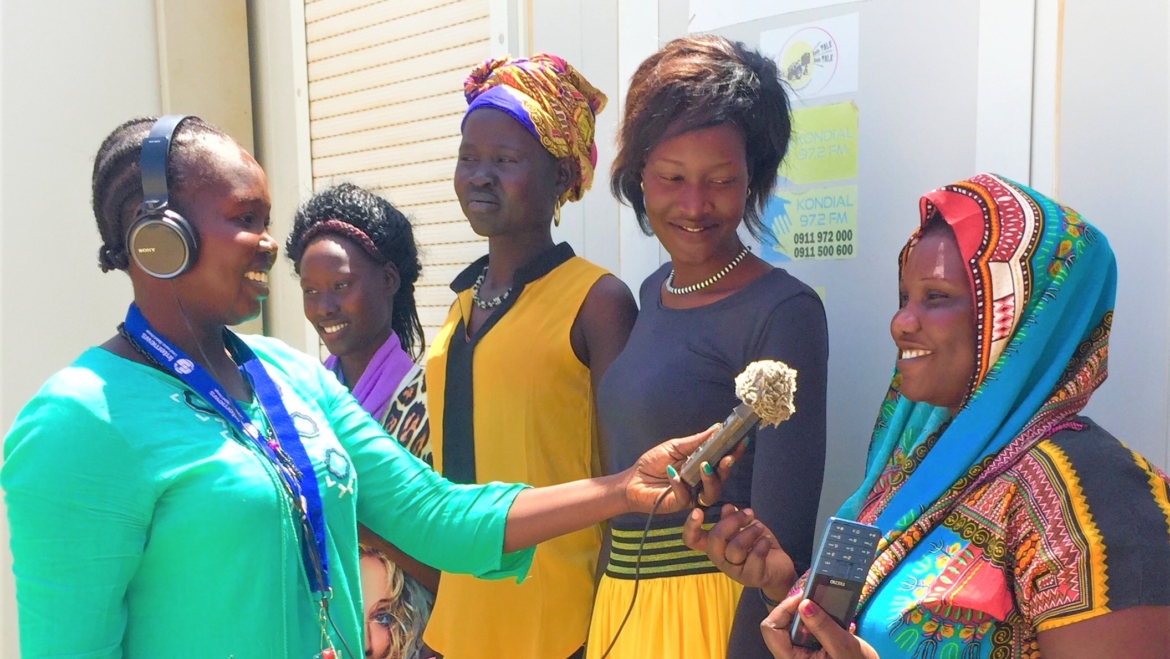Are governments and programs around the world making decisions based on incomplete data collection strategies that are not inclusive of disadvantaged and marginalized populations such as women, youth, and persons with disabilities? Failing to take into account the significant impact of government programs on these populations can skew the findings of assessments and limit the applicability of recommendations to key demographics. Remote data collection, which has become more relevant during the COVID-19 pandemic, further complicates inclusivity goals as the most marginalized populations are also those least likely to have access to or success using telecommunications tools.
The Cloudburst Group, a Women-Owned Small Business, is maximizing use of inclusive data collection methodologies. Under the Learning, Evaluation, and Research (LER) II Task Order, Cloudburst has conducted numerous assessments for USAID Missions globally that examine how USAID’s current and future programs address social, economic, and political inclusion of women, youth, persons with disabilities, and members of ethnic and religious groups. The following examples showcase how Cloudburst has promoted and ensured inclusivity of these groups, including highlighting best practices
In a rapid democracy, human rights, and governance assessment of the political situation in Sudan, Cloudburst examined the inclusion of ethnic and religious groups, women, and youth in Sudan’s transitional government. To that end, the assessment team conducted two weeks of fieldwork in Sudan and held Focus Group Discussions (FGDs) and Key Informant Interviews (KIIs) with stakeholders in government and civil society sectors. Cloudburst then issued recommendations to advance inclusion, including increasing meaningful representation of women and youth in traditional political parties. Cloudburst also helped the transitional government establish formal channels of cooperation between civil society and the government to strengthen youth and community voices.
Cloudburst also evaluated USAID capacity-building assistance to disabled-people’s organizations (DPOs). Cloudburst conducted four weeks of fieldwork and online surveys of organizations and trainees. Cloudburst is also currently conducting an assessment of Election Management Bodies (EMBs) for USAID/Nigeria to inform future programming in that country. This includes examining how USAID can support EMBs in facilitating wider, more inclusive participation of Nigerian citizens in elections. Cloudburst is specifically evaluating the programming’s impact on women, youth, and persons with disabilities.
Cloudburst will also incorporate Gender Equality and Social Inclusion (GESI) analysis into two upcoming assessments for USAID/Zimbabwe that examine gender equity, youth, and social inclusion in civil society and the media landscape. Through key informant interviews and focus group discussions, Cloudburst will help the Mission identify opportunities to address overt and unconscious power dynamics, and promote more inclusive civil society and media participation.
In the course of these diverse assessments, Cloudburst employed such innovative techniques as survey and list experiments to measure sensitive subjects like gender preference and attitudes toward local governance. In addition, Cloudburst rapidly iterated data collection approaches that were highly customized for the specific research context. During the COVID pandemic, these have included remote (phone or online) surveys, hybrid approaches that pair in-person mobilization with remote surveying, and thoughtful in-person approaches that rely on local staff and use strong safety protocols and adaptive management to ensure responsiveness to conditions on the ground. These also include:
- Recruiting research team members who reflect disadvantaged and marginalized populations (i.e., women and youth), and looking for opportunities to provide coaching and mentoring to these team members
- Designing methodologies to capture voices and experiences from disparate geographies and not just in major cities. This is especially important in contexts where the concerns of the population vary greatly by region, such as Sudan.
- Including caregivers, parents, or organizations representing the needs of marginalized or disabled populations in data collection strategies and using methods and technologies that they are comfortable with (i.e., phone, WhatsApp, and Zoom) to capture data.
Prioritizing inclusivity in data collection starts with first understanding the people, populations, and groups impacted by policy and programs and then ensuring their voices are heard.


Your Comment
Leave a Reply Now